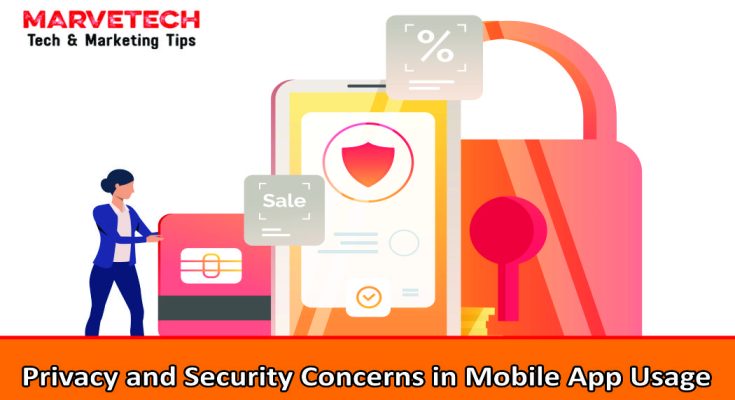In digital age, Smart phones have become an indispensable part of our lives. They offer a wide range of applications, or apps, that cater to our diverse needs and interests. From social networking and messaging to shopping and productivity, mobile apps have transformed the way we interact, access information, and conduct daily activities. However, as we embrace the convenience and functionality of these apps, it is crucial to address the underlying concerns regarding privacy and security.
The increasing prevalence of data breaches, unauthorized access to personal information, and misuse of data has raised alarm bells about the potential risks associated with mobile app usage. In this article, we will delve into the realm of privacy and security concerns in mobile app usage, exploring the challenges, potential vulnerabilities, and best practices to protect our personal information in an ever-evolving digital landscape.
Introduction
In this hyper-connected world, mobile apps have become an integral part of our daily lives. From social media and entertainment to productivity and shopping, we rely on these apps for various aspects of our personal and professional endeavors. However, amid the convenience and functionality they offer, concerns about privacy and security have emerged. As we entrust our personal information to these apps, questions arise about how our data is handled, protected, and potentially exploited.
This article aims to delve into the complex landscape of privacy and security concerns in mobile app usage, shedding light on the potential risks users face and providing practical insights to safeguard personal information. By understanding these concerns and adopting proactive measures, we can navigate the app ecosystem more confidently, preserving our privacy and digital well-being.
With the widespread use of Smart phones and mobile applications, our lives have become increasingly intertwined with technology. While mobile apps offer convenience and connectivity, they also raise significant concerns regarding privacy and security. This article explores the potential risks and challenges associated with mobile app usage, covering topics such as data collection and sharing, app permissions, vulnerabilities, and best practices for protecting personal information.
Data Collection and Sharing
Mobile apps often collect and share user data, ranging from personal information to browsing habits. This data is frequently used for targeted advertising and analytics, but it also raises concerns about privacy. Understanding how apps collect and share data is crucial for making informed decisions about the apps we use.
App Permissions
When installing mobile apps, users are prompted to grant various permissions. These permissions determine the extent to which apps can access sensitive data or device features. It is essential to scrutinize these permissions and grant access only when necessary, as excessive permissions can pose risks to privacy and security.
Protecting Personal Information
Mobile apps can be vulnerable to security breaches, which may result in unauthorized access to personal information or even financial data. Developers must prioritize secure coding practices, regularly update their apps, and implement robust security measures. Users, in turn, should keep their devices up to date and exercise caution when sharing personal information through apps.
Privacy Policies
Privacy policies outline how apps handle user data and disclose their data-sharing practices. While often lengthy and complex, reading privacy policies can provide insights into how our information is used and shared. Being aware of an app’s privacy policy helps users make informed decisions about which apps align with their privacy preferences.
App Permissions Management
Mobile operating systems offer app permissions management tools that allow users to review and modify permissions granted to installed apps. Regularly reviewing and adjusting app permissions is crucial for maintaining control over the information accessed by apps and minimizing potential privacy risks.
App Reputation and Reviews
Before downloading a mobile app, it is beneficial to research its reputation and read user reviews. Other users’ experiences can offer insights into potential privacy and security issues associated with the app. Taking the time to understand the app’s reputation and user feedback can help users make informed choices.
Protecting Personal Information
Securing mobile devices is paramount to safeguarding personal information. Measures such as using strong and unique passwords, enabling biometric authentication, keeping devices updated with the latest security patches, and installing reputable security apps can significantly enhance mobile device security.
Conclusion
In the ever evolving digital landscape, privacy and security concerns in mobile app usage are of paramount importance. As we embrace the convenience and functionality of mobile apps, it is essential to prioritize safeguarding our personal information. By being mindful of app permissions, staying informed about data collection and sharing practices, and implementing strong security measures on our devices, we can protect our privacy and mitigate potential risks. With responsible practices and a proactive approach, we can navigate the world of mobile apps with confidence, ensuring the safety and privacy of our personal information in the digital age.





One Comment on “Privacy and Security Concerns in Mobile App Usage”